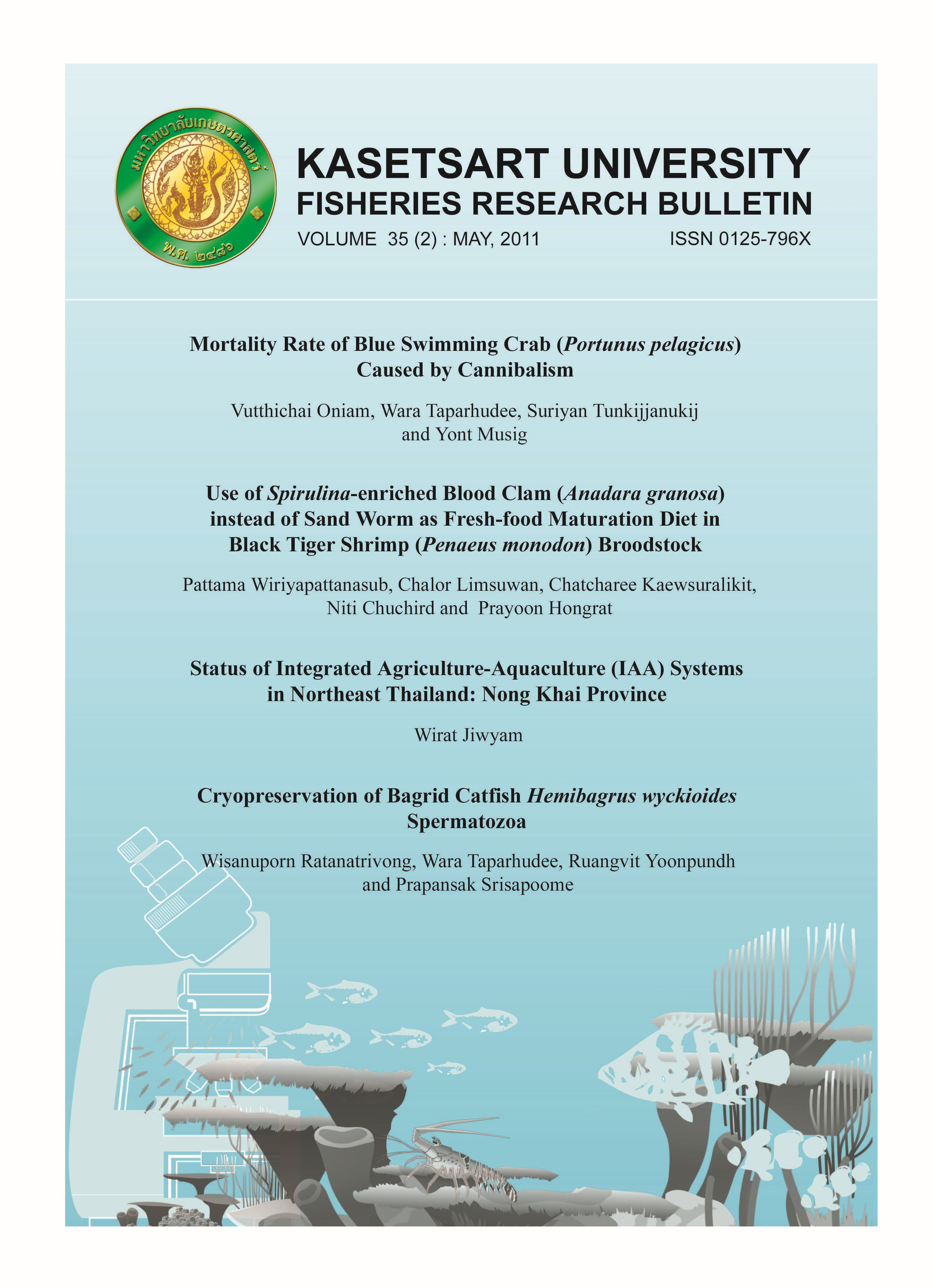Use of Spirulina-enriched Blood Clam (Anadara granosa) instead of Sand Worm as Fresh-food Maturation Diet in Black Tiger Shrimp (Penaeus monodon) Broodstock
Main Article Content
Abstract
The effect of fresh-food maturation diets on reproductive performance of black tiger shrimp (Penaeus monodon) broodstock was compared. Female broodstock shrimp of 10-12 inches in total length and weighing not less than 200 g. and male broodstock shrimp of 8 inches or larger with body weight of not less than 96 g. were used for the experiment. Shrimp were randomly stocked into two 4-m3 maturation tanks with 19 females and 15 males per tank. Treatment 1, diet A was composed of 20% swimming crab (Portunus pelagicus), 10% sand worm (Perinereis sp.) and 20% squid, while treatment 2, diet B was composed of 20% swimming crab, 10% Spirulina-enriched blood clam (Anadara granosa) and 20% squid. The formulation of diet A is the most commonly used for fresh-food feeding by shrimp hatcheries in Thailand. Each treatment of broodstock was fed with different natural food at different percentage of shrimp body weight three times a day (at 0500, 1300 and 2200 hrs) throughout the 30-day feeding trial. At the end of the trial, the reproductive performance of each treatment was compared. The total and average number of spawning of treatment 1(19 females) was 64 or 3.37+1.12 per female, respectively, compared to 62 or 3.26+1.32 per female, respectively, in treatment 2 (19 females). The number of eggs and nauplii produced from treatment 1 were 68.55 x106 and 36.7 x106, respectively, compared to 61.20x106 and 35.2 x106, respectively, for treatment 2. There were no significant differences (P>0.05) between treatments 1 and 2. Moreover, percentage hatching rates and metamorphosis to nauplius stage in both treatments were not significantly different (P>0.05). However, total carotenoids in eggs from treatment 1 was 3.22+ 0.10 µg g-1 which is significantly lower than 7.82+0.14 µg g-1 from treatment 2 (P<0.05). This study indicated that Spirulina-enriched blood clam could be used as a replacement for sand worm in fresh-food maturation diet for P. monodon broodstock if female broodstock size is 10-12 inches in total length.


